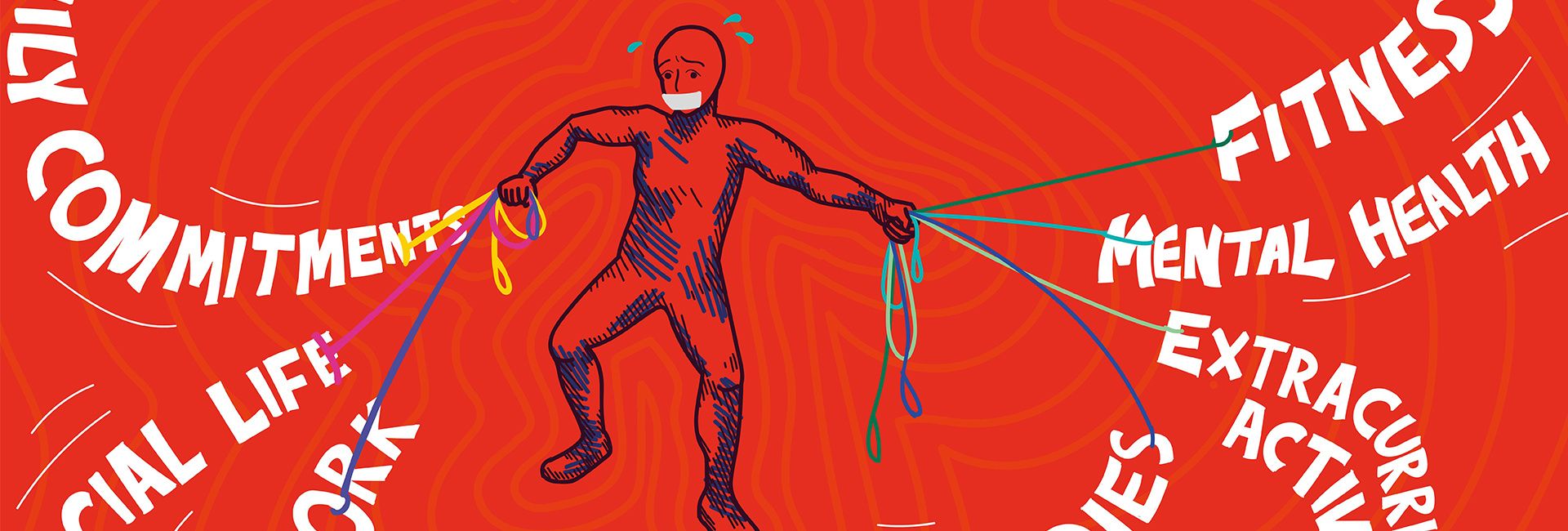COMMENT
Managing mental health has never been easy for me but under COVID, it became almost impossible. I took up every quarantine trend imaginable in order to occupy my time and prevent my COVID-fuelled anxieties seeping through. I baked banana bread, scrolled endlessly on TikTok and used Zoom to wish my friends a happy birthday.
Some enjoyed not having to go out and took advantage of the perks of lockdown but for me, lockdown meant my pre-existing mental health problems were unavoidable.
This year the COVID pandemic made simple everyday activities twice as hard to do, let alone trying to manage your mental health. The virus has claimed more than 1.3 million lives worldwide, cratered global economies and changed our way of life.
In March, national efforts to contain coronavirus meant Australia introduced social isolation guidelines. With the lockdown, my daily routine slowly disintegrated and with it, my mental health. At the start I was hopeful (and admittedly in denial), that coronavirus would be gone within a week and everything would go on as usual. But, it never did.
Sydney psychologist Mihui Kim has seen the different ways coronavirus impacted new patients and her existing patients already coping with pain management, anxiety and PTSD. "There was an increase in new patients because of the lockdown, who couldn't adjust to the new environment. A lot of them lost their jobs and lost a lot of their income … but my existing clients actually reduced their attendance either physically or online," said Kim, owner of Rehab Focus Enterprise, which has offices in Sydney, Newcastle and Wollongong as well as offering online services.
"Their symptoms worsened…they all presented agrophobia as well."
I felt a lot of guilt in crying over something so small when it seemed like the rest of the world was on fire.
I have dealt with mild anxiety and depression for more than three years. Personally, those first few months of lockdown were by far the most gruesome time for managing my mental health because I was forced to "hibernate" with nothing to do but face myself. I had insomnia, I suffered from loneliness and became increasingly fearful about the spread of COVID outside my bedroom walls. The conditions of lockdown prevented me from obtaining the support and structure I needed to offset these disorders.
For the first time in more than a year, I had a panic attack. It was catalysed by a simple school email about enrolling in online classes for the next term. Upon reflection, the uncontrollable crying and racing heart was my body's release from the stress I had bottled up inside through lockdown. Trying to study online, being limited to one walk a day for exercise, only talking to my friends on Zoom and being unemployed, it all became too much to cope with.
I denied I was struggling to balance my mental health. I felt a lot of guilt in crying over something so small when it seemed like the rest of the world was on fire.
I was not alone. A national survey conducted by Monash University on mental health in the initial lockdown phase found 30 per cent of 1,200 Australians surveyed experienced moderate to high levels of anxiety and depression.
In March, the Federal Government allocated $74 million for mental health services and gave temporary approval for telehealth appointments to ensure people could continue to access psychological treatment online. The October Budget offered a further $148 million to total funding of $5.7 billion for mental health in 2020-21.
Kim acknowledged the benefits of using telehealth to reach people in regional areas who were unable to access services. However, she raised concerns about using online sessions for existing patients. Even though the clinic was open, she found patients would not come out due to fear of contracting COVID. At the same time, others had trouble managing or accessing the technology.
"Those patients [in a chronic state] who I need to see on a regular basis, face-to-face, all of them are on medication … because I was very worried about them, I actually physically visited them [at their homes] because I knew they would miss two full weeks of sessions and that's quite significant."
As restrictions began to ease, I felt able to catch my breath. However, my underlying anxiety never really disappeared after lockdown, it only lessened in severity.
Psychologist Kim believes the mental health effects of COVID are still prevalent in the community, despite the fact lockdown in NSW is over and many people are going back to work. "So I don't think we have actually adjusted to COVID … I think we are going through it now," she said.
"It's like trauma, like PTSD. When you're in a shock you function normally. People think 'Oh, OK, you're fine' but they're not, because they are in so much shock and trauma. When you're in the beginning stage you just do what you need to do. Now we can do more, as long as you social distance."
"Think about what made you happy and what increased your motivation before COVID and come up with some creative ideas to do similar ways of doing them."
I was not prepared to deal with living in a COVID-world. I still struggle to keep my anxieties under control but with my support network of friends and family, I have survived these tough times.
With 2021 just around the corner, we are about to close the book on what has arguably been the worst year of my young life. This week there has been promising news of vaccines. I remind myself they offer a shield not a cure and that managing my mental health is a continuing battle.
If this story has raised concerns, contact Headspace on 1800 650 890 or Beyond Blue on 1300 22 4636







Afraid of an egg: the tyranny of living with social media's body standards